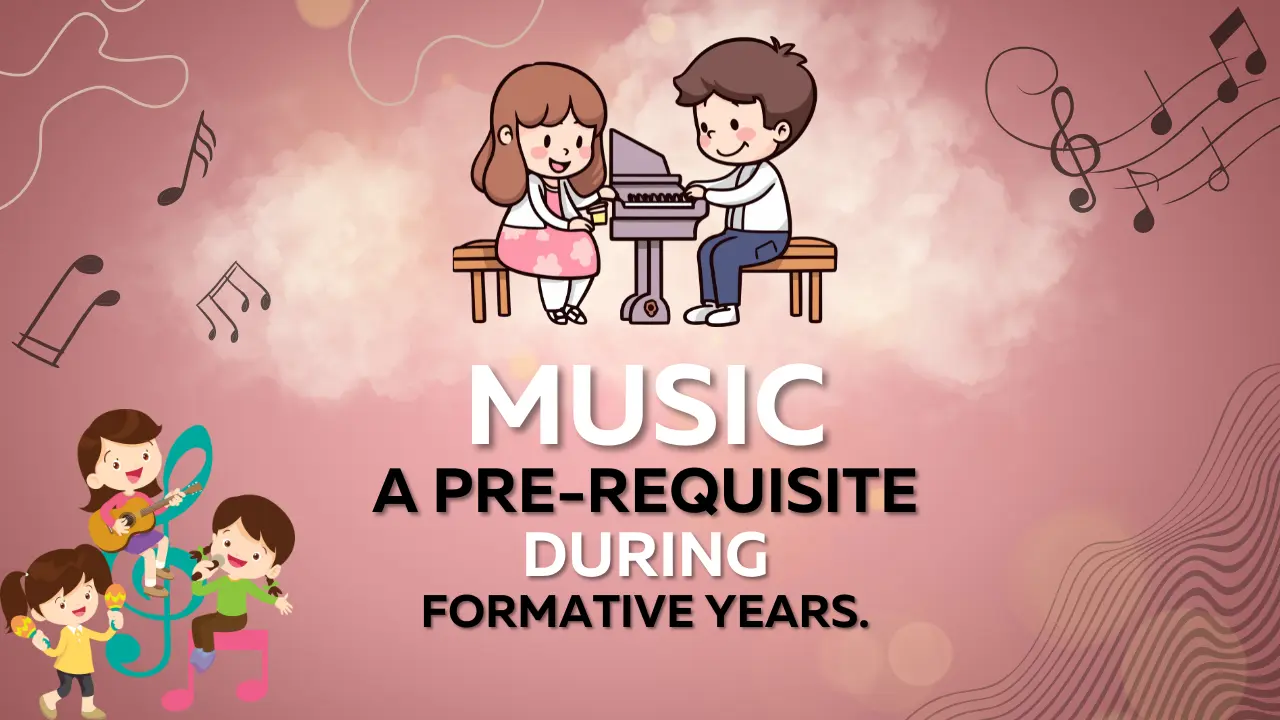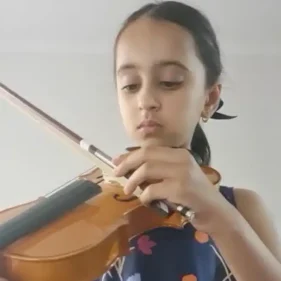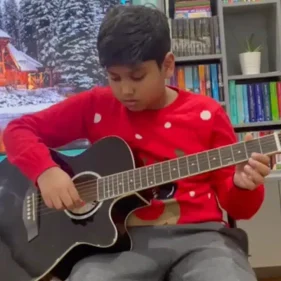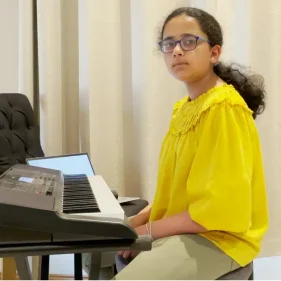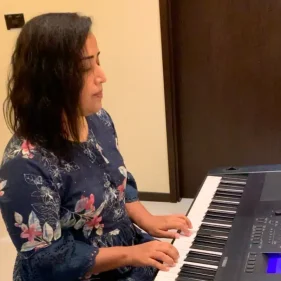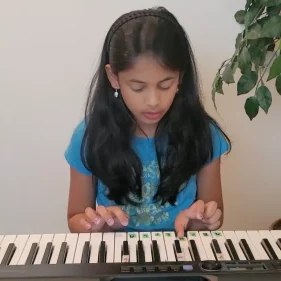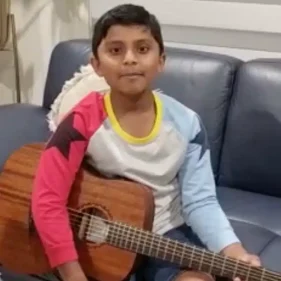- Music education for Children
- Music education scores released for children
- The developmental benefits of music in children
- Originally scientific music
- The emotional Crescendo
- The social movement
- The rhythmic routines
- Echelon of early childhood music programs
- The Kodaly methodology
- The Suzuki method
- Orff Schulwerk
- Fortissimo Foundations: The role of music in cognitive development
- The Mozart Influence Revisited
- Different dances of progress
- Educational Yuan: Music in Primary Learning Settings
- Stepping Stones music
- The tool category
- The heart of storytelling
- Outstanding nutrition: musical activities for children
- Circular rhythm
- Equipment innovation
- Singalong Architecture
- Friendship fugue: Music and social-emotional learning
- A sweet land of sympathy
- Cultural considerations
- Consistent coherence
- CODA: The musical heritage of early childhood education
- FAQs
Music education for Children
There is a convention that underlies the rhythm of life, a whisper of music in our childhood years, and it shapes not just the words we hear, but the very essence of who we become. More than just a combination of voices, music has been a teacher, therapist, and partner for human development since the beginning of our species. Today, in contemporary studies, let’s put those layers of powerful influence behind us and explore Music Education for children.
For any adult, walking down memory lane can often coincide with the rhythm of their youth, but what about those who have yet to write the music of their lives? This blog is a collective effort to explain how music can be an integral part of a child’s educational development and upbringing – and how its integration into early learning environments can be a system of benefits.
Music education scores released for children
From Mozart to Madonna, music has long been an important source of culture. It is this shared spirit that enthusiasts and educators strive to pass on to each generation. Music education is not only important for children and teaching them to sing or play an instrument but it will also give them a wide range of skills that are important for life
The developmental benefits of music in children
It is well documented that involvement in musical activities from an early age can significantly enhance a child’s development. Research supports the positive role of music in increasing language and literacy, improving mathematical reasoning, and expanding memory and attention.
Originally scientific music
Learning music requires coordination of brain functions, from auditory processing to motor skills. It’s a brain exercise that paves the way for early cognitive development. The study found an association between musical training and improved spatio-temporal skills necessary for complex activities such as solving puzzles and understanding concepts in math and science.
The emotional Crescendo
Music is a universal language that bypasses logic and appeals directly to the emotional centers of our brain. For children, this means an introduction to recognizing and expressing emotions in a structured, supportive environment. Through music, they learn to listen not only with their ears but also with their hearts, discovering small voices and tones that tell an ineffable story.

Did You Know?
Wolfgang Mozart started playing songs on the harpsichord at the age of four
The social movement
To be involved in an orchestra is to interact with others, to be part of something bigger than oneself. This cooperative aspect of musical play serves as a scaffold for life skills, teaching children about teamwork, listening and cooperation.
The rhythmic routines
For young children, many predictable and repetitive songs and musical activities create a sense of security and routine. This rhythm is not only relaxing but also builds time management and grooming skills.
Echelon of early childhood music programs
Recognizing the many benefits of music education, organizations and individuals have developed special programs designed to connect with young students.
The Kodaly methodology
Renowned Hungarian composer and teacher Zoltán Kodály presents a music education program that emphasizes the use of folk songs, solfege, hand signals and rhythms for pedagogical purposes The Kodály Method has gained international recognition in its development appropriate and inclusive for all children.
The Suzuki method
Motivated by the idea that any child can learn music in a manner similar to learning language, Drs. Shinichi Suzuki developed the Suzuki Method. This approach to music education for young children emphasizes parental involvement, listening, repetition, and involvement in a supportive musical environment.
Orff Schulwerk
Developed by German composer Karl Orff, the Orff Schulwerk Method is based on the belief that music, movement and language are legitimate inclusions in every child’s education.
Fortissimo Foundations: The role of music in cognitive development
Childhood rhythm is as important as it is ephemeral, and music plays a central role in composition. At a deeper cognitive level, exposure to music can increase brain plasticity, increasing the ability to learn in different areas.
The Mozart Influence Revisited
Although controversial in some cases, the ‘Mozart effect’ has stimulated invaluable research into the effects of music on the brain. The idea that listening to classical music can temporarily enhance the spatio-temporal reasoning so important for learning in areas such as math and science highlights the neural value of music emphasis on participation.
Different dances of progress
Each type of music plays a different role in a child’s cognitive development. While classical music can program complex cognitive tasks, folk songs and communicative music can be particularly effective for language development and cultural understanding.
Educational Yuan: Music in Primary Learning Settings
Music needs to be more than just background noise in the canvas of a child’s educational experience. Indeed, it is an important weaving skill, one that marks not only years of fun and play but also deeper learning and development.
Stepping Stones music
The simple songs and nursery rhymes are rich with literary devices and rhythms that prepare young minds for reading and storytelling. These ‘early literary works’ serve as the foundation of language structure, fostering an interest in oral communication and phonology.
The tool category
Learning to play an instrument involves a variety of subtle physical and mental processes. For a child, this means developing fine motor skills, finger dexterity, and hand-eye coordination – skills critical for a wide range of future endeavors, from writing skills to organization.
The heart of storytelling
Music has the incredible ability to transcend the barriers of time and space through storytelling. When music is part of a child’s educational environment, it acts as a memory device, a tool for memory and recall, and ensures that historical and cultural narratives are firmly ingrained in their consciousness.
Outstanding nutrition: musical activities for children
The early years are a blank canvas, waiting for the brushstroke of living experience. For children, this is often exploratory play, and music should be no exception. From simple drums to homemade vibrators, there are plenty of activities to introduce young children to the joys of music.
Circular rhythm
Childhood is a time of growth of independence and self-awareness. Musical activities involving the repetition of music rhythm and movement not only provide a platform for this growing independence, but also provide an important lesson in the structure and sequence that underlies everyday activities.
Equipment innovation
When children are introduced to musical instruments, creativity is the watchword. It can produce any sound from a traditional xylophone to an array of pots and pans, becoming a meditation device that delights in discovering their various ‘voices’.
Singalong Architecture
The simple act of singing with children, between lessons or as bedtime music, promotes the power and joy of communication through song Melody becomes part of a shared conversation, through music they build relationships together, and share learning.
Friendship fugue: Music and social-emotional learning
In the rhythm of social and emotional learning, music stands as a powerful guide, guiding children through the complexities of interpersonal interaction and self-discovery.
A sweet land of sympathy
Empathy, the ability to understand and communicate the feelings of others, is fundamental to social and emotional development. Storytelling through music, exploring different styles and perspectives provides a safe and structured opportunity for children to step into the shoes of others.
Cultural considerations
Exposure to musical traditions fosters cultural awareness and appreciation from an early age. By discovering and celebrating a wide range of human experiences through music, children learn to appreciate the rich fabric of global cultures, opening the door to inclusion and empathy.
Consistent coherence
In addition to musical metaphors, cooperation includes the idea of finding harmony in diversity, an important lesson to be taken in the nuances of life between people. Music groups act as microcosms of cooperative interaction, where the contribution of the participant is important to the collective as a whole.
CODA: The musical heritage of early childhood education
During the formative years, the power of music extends beyond the classroom; It stays in our memory, giving us a series of reliefs and connections to the world. As educators, parents, and advocates, we have a collective responsibility to ensure that music remains an integral part of early childhood education – not just for its short-term appeal, but for its lasting legacy for the eternity it leaves behind.
We teach children to appreciate and engage in music. We don’t just teach the subject matter; We focus on a life of creativity, discipline, emotional and intellectual expression. This harmonious approach to learning may not be the only way, but it stands as a testament to the lasting impact music has had in shaping the next generation.
The parallel between the maths and music is the next blog on the read list
FAQs
Is music education important during formative years of a child?
Music education can bring a sense of discipline and instil the habit of practice in a child’s life. It can help the child direct all his or her energy towards Music.
Cognitive development and music – does it have a connection?
Music stays in our memory, giving us a series of reliefs and connections to the world. While classical music can program complex cognitive tasks, folk songs and communicative music can be particularly effective for language development and cultural understanding.
Does music play a role in emotional and social development during childhood?
Music has proven to have a very good impact on a child’s motor and cognitive skills. This in turn results in a well rounded emotional and social development as well.
Were any studies conducted to prove the positive effects of music on children’s learning abilities?
Many studies state that music can develop the following skills – planning, working memory, inhibition, and flexibility of a child.
A few ways for parents to incorporate music into their child’s daily routine effectively?
Parents can curate a playlist for their kid to listen, enrol their kids in music classes and introduce them to world music slowly.

